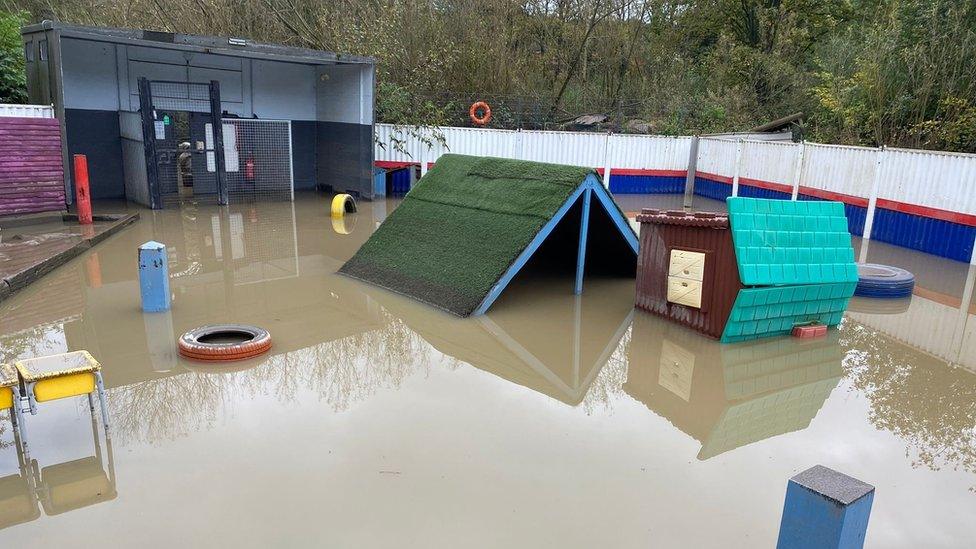Flood victims told to pay upfront for government aid
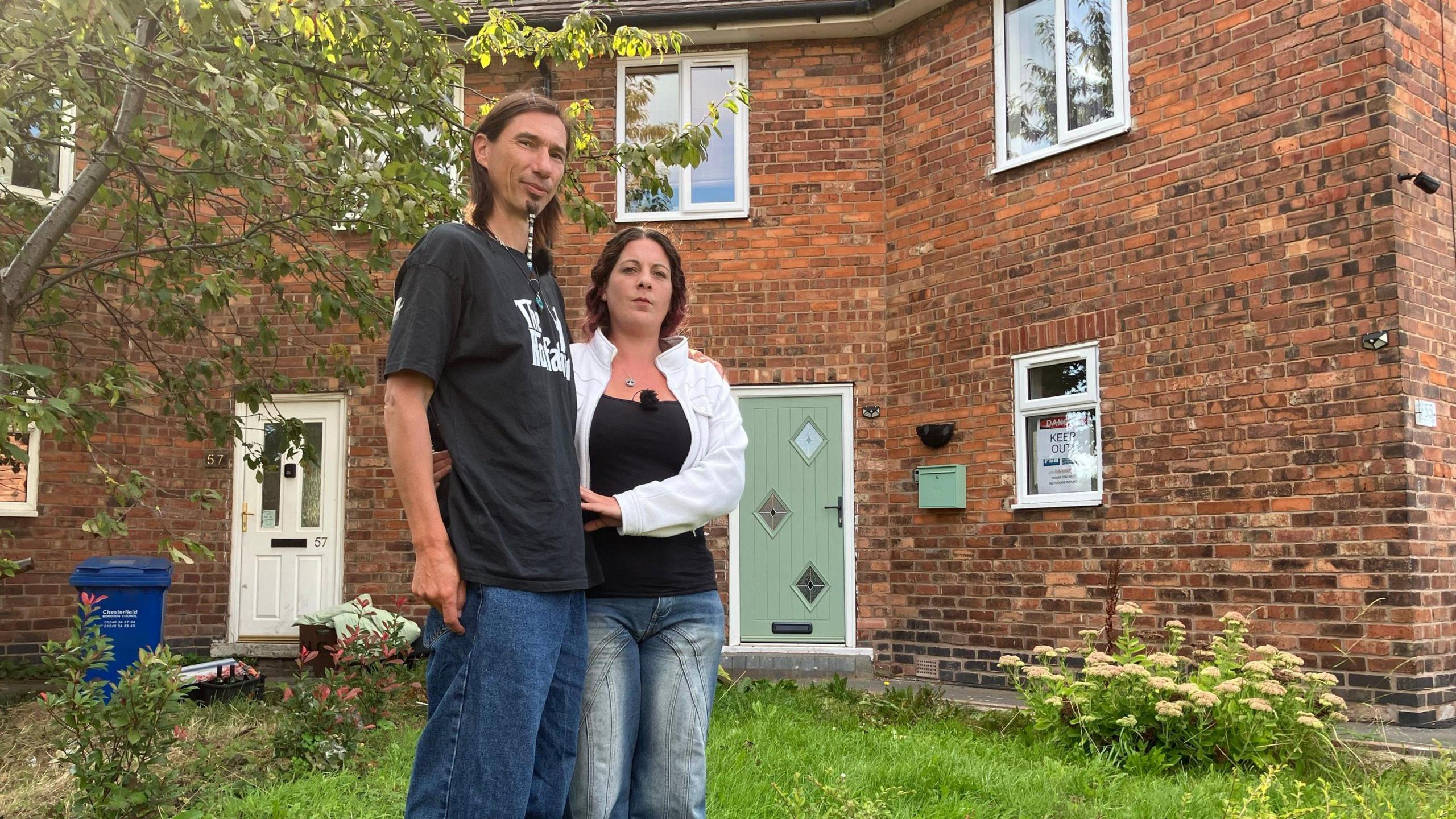
Carlie Hayward and Peter Sivitter's home was flooded during Storm Babet in October 2023
- Published
Residents whose homes were flooded in 2023 have criticised a government grant aimed at helping them add mitigation measures to their homes.
The Property Flood Resilience Grant, from the Department for Environment, Food & Rural Affairs (Defra), enables households to claim up to £5,000 through their local council.
But households have to pay the money upfront before claiming it back - with a chance of refusal if it does not pass an inspection.
Carlie Hayward, from Poolsbrook near Chesterfield in Derbyshire, told the BBC: "So many people are going to go without help because they don't have the funds."
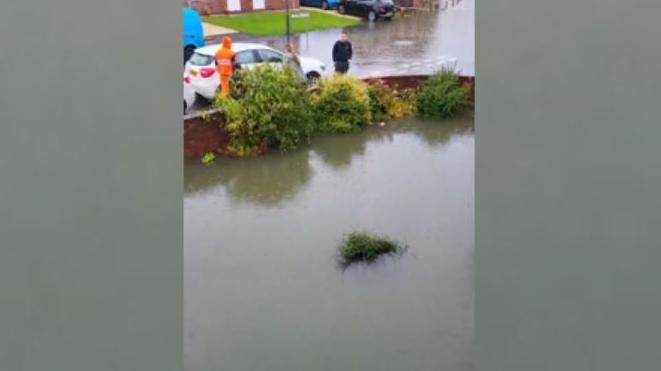
Ms Hayward said her front garden resembled a "lake"
Flood water came through Ms Hayward's home during Storm Babet in October, first into the front garden which "turned it into a small lake".
It then made its way through the downstairs of the property.
"We did everything we could to save as much as we could," she said.
"I even rang the fire brigade at one point... I just felt so hopeless.
"It was devastating and I had to keep telling myself 'thank God we're insured' because it would've bankrupted us."
Nearly one year on, the pair still do not have a living room to use, but their kitchen has been replaced.
Their attention then switched to the grant when it became available.
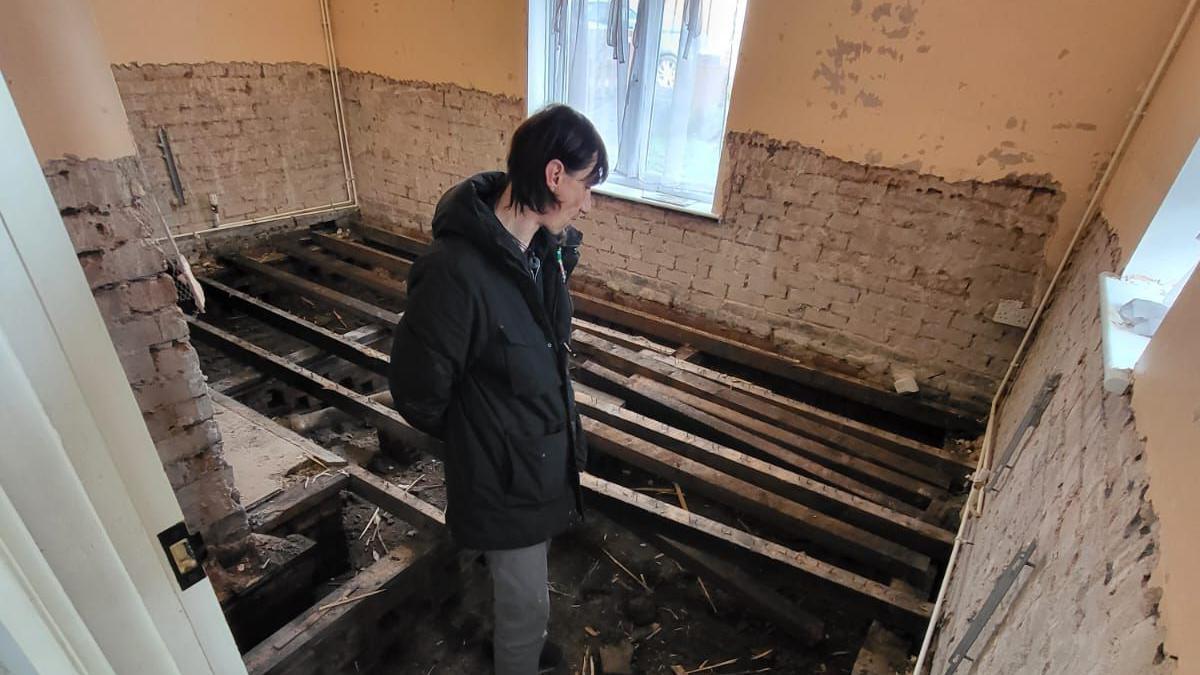
The whole of the downstairs of the property was heavily affected by flood water
The government grant enables people to claim up to £5,000 for flood mitigation measures.
This could include flood doors and treatment for walls such as breathable plaster.
Ms Hayward, 38, said Derbyshire County Council was initially going to pay the contractors to carry out the work, so there was no financial burden on the homeowner.
But a letter sent to residents later informed them they were not allowed to do this under the current rules put in place by Defra, which came as a "shock" to Ms Hayward and her partner Peter Sivitter, 46.
People now have to pay upfront, get it signed off by an inspector and then wait for the money to be paid.
"For us who are struggling to get by for the past 10 months to deal with the aftermath and then be told we need to [find the money up front], it's a real blow because we don't have that money," Ms Hayward said.
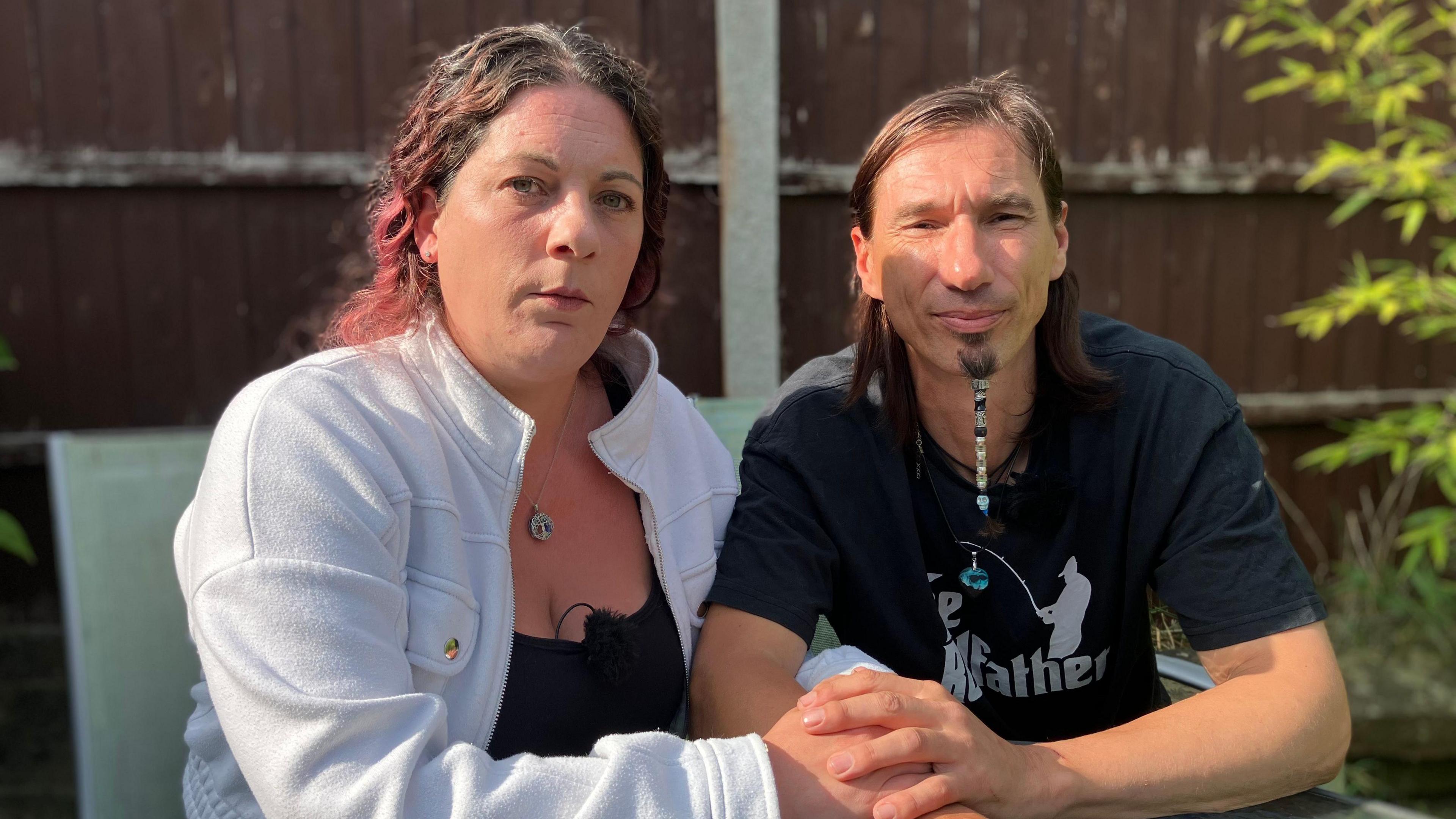
The couple are urging the government to change the rules to make the grant funding more accessible
"So many people are going to go without help because they don't have the funds."
Mr Sivitter said: "I'm working 50-60 hours a week to make the extra overtime money and we're living hand to mouth - we're struggling and we need these measures in place."
The pair said they were constantly checking weather apps on their phone for the next big downpour and they openly admit as the colder, wetter weather approaches in the coming months, they are nervous.
"We call it rain anxiety," Mr Sivitter added.
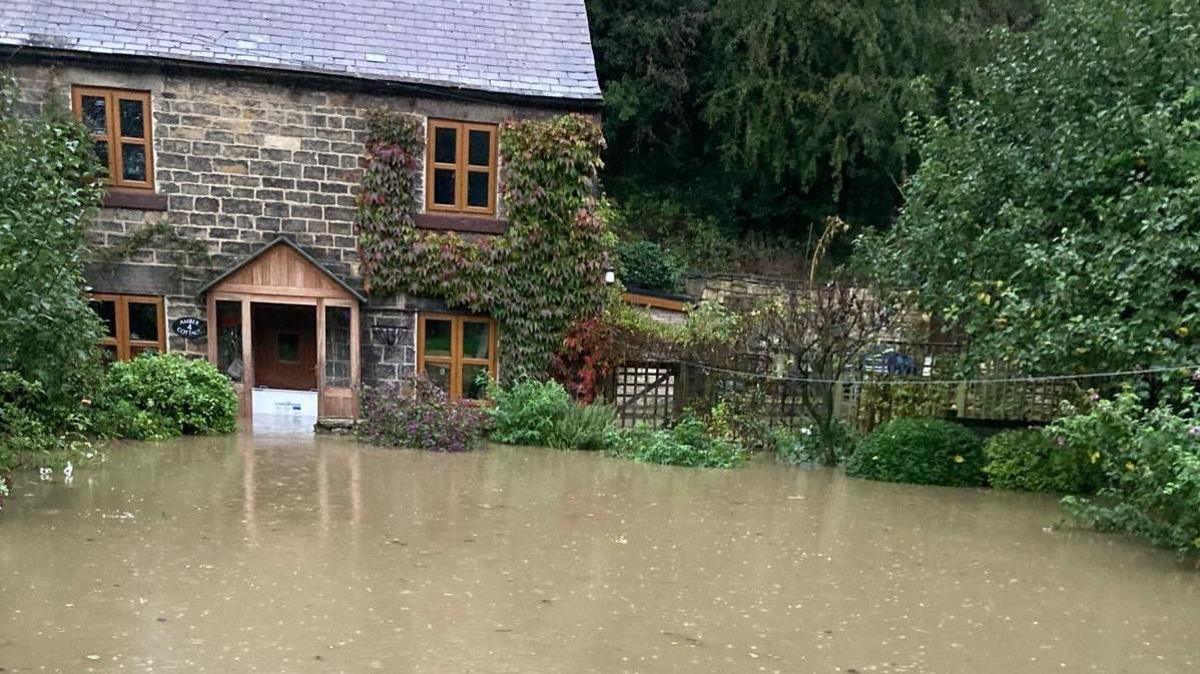
Ali Barlow's home was flooded during Storm Babet in Ambergate near Belper
Ali Barlow's home in Ambergate, Derbyshire, also flooded during Storm Babet.
At its height, the water level came up to nearly a metre (3.3ft) inside her home.
Ali said the grant was "more difficult than it needs to be".
"I don't see how people can do it like this... people are already paying out a lot anyway in the immediate aftermath," she said.
"People just don't have the amount of money needed... I feel for people in that position because if you don't have a penny to spare, you'll have no hope of getting this grant."

Ali Barlow said the grant application was harder than it needed to be
Derbyshire County Council told the BBC it is in contact with other councils who are collectively calling for the rules to be changed.
A total of 545 households in Derbyshire have applied for the grant, the authority said.
A Defra spokesperson added: "The Property Flood Resilience Grant helps make homes more resilient in case of future flooding events and grant funding is paid once the works are done to ensure appropriate use of public money."
Follow BBC Derby on Facebook, external, on X, external, or on Instagram, external. Send your story ideas to eastmidsnews@bbc.co.uk, external or via WhatsApp, external on 0808 100 2210.
- Published22 October 2023
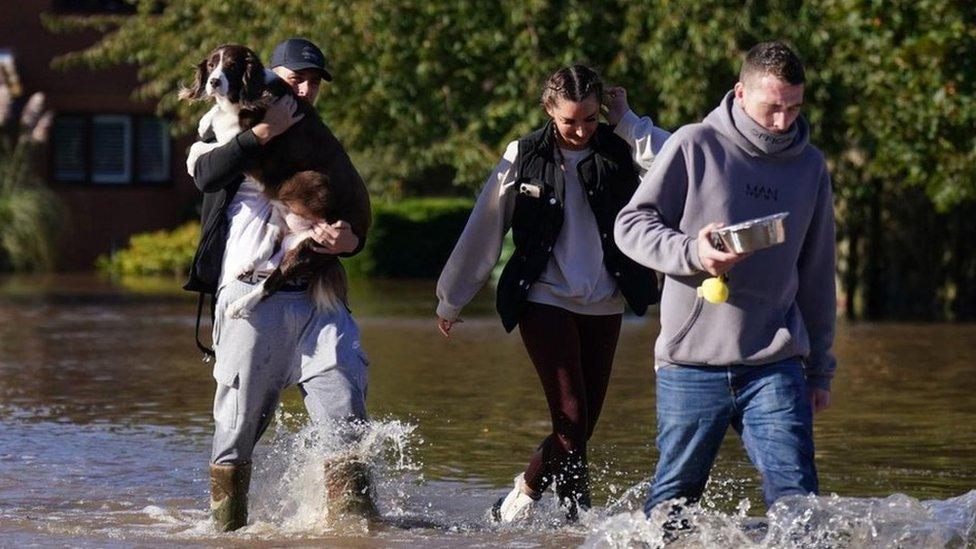
- Published19 January 2024
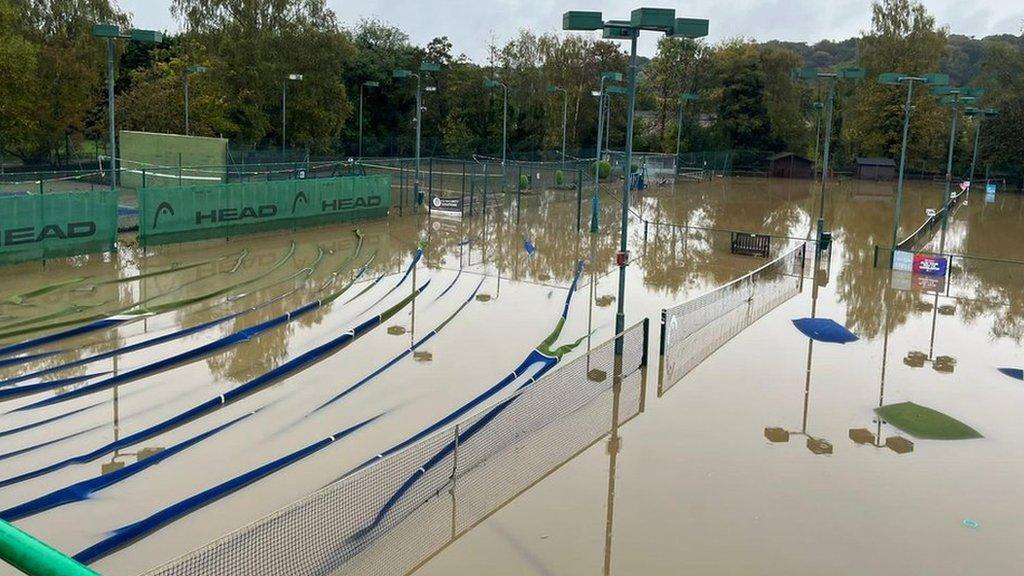
- Published27 October 2023
